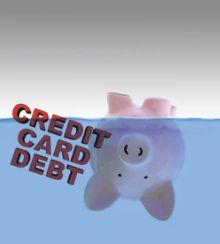How Long Does A Chapter 13 Stay On Your Credit Report?

Many people who are considering Chapter 13 bankruptcy wonder how long it will stay on their credit report. The short answer is seven years from the original filing date. However, it’s important to remember that the negative impact of the Chapter 13 filing can decrease over time.
What happens to your score when Chapter 13 bankruptcy ends?
Your bankruptcy ends once your eligible debts are discharged at the completion of your court-approved repayment period of three to five years. After your bankruptcy ends and the debts are discharged, your credit score should start to climb. This should accomplish a couple of things that will improve your credit. First, a large percentage of your credit score is based on making on-time payments, at the end of your bankruptcy, you will have already demonstrated on-time payments for several years. You will also have gotten rid of some of your problematic accounts, which will also boost your score.
Additionally, your credit score should improve when your bankruptcy ends. You can potentially see a significant increase to your credit score once the bankruptcy falls off your credit report. However, you don’t have to wait for the bankruptcy to fall off your credit report or for the bankruptcy to end to start demonstrating a pattern of responsible credit use.
The impact of the bankruptcy can lessen over time, especially if you are diligent about making on-time payments and keeping your credit usage low. Ultimately, the seven years will pass and the bankruptcy will be removed from your credit report, which should cause a significant increase in your credit score.

Does Chapter 13 bankruptcy affect your credit score immediately?
Yes, when people file Chapter 13 bankruptcy, they should expect an immediate drop in their credit score. Likewise, when the bankruptcy ends, people can expect to see their score start to improve and when the bankruptcy falls off their credit report they can see another boost to their score.
It’s important to note that the exact amount a score is impacted is largely based on the score at the beginning of the process. Many people who file Chapter 13 have already damaged their credit scores and often the impact is less than for someone who has a higher initial score.
What are the key differences between Chapter 13 and chapter 7 bankruptcy?
There are several important differences between Chapter 7 and Chapter 13 bankruptcy.
Chapter 7 gives people who can pass a means test and have primarily unsecured debts a faster, straightforward path to debt discharge. While Chapter 7 bankruptcy may offer a quicker path to discharging eligible debts, it's important to note that it stays on your credit history report for ten years.
Chapter 13, on the other hand, gives people an opportunity to reorganize their debt and make manageable monthly payments for three to five years under a court approved plan. Chapter 13 cases are typically more complicated and take longer before your debts are discharged, however, Chapter 13 bankruptcy stays on your credit report for seven years from the filing date, not the date of discharge.
Can lenders see Chapter 13 bankruptcy after it falls off credit report?
Once Chapter 13 falls off your credit report lenders will not be able to see it. While lenders cannot see the bankruptcy, other entities including certain employers and government agencies may still be able to uncover the bankruptcy if they search court records.
How do future loans and mortgages treat Chapter 13 bankruptcy?
Your ability to obtain future loans and mortgages after Chapter 13 depends on several factors. For example, home loans - while FHA loans sometimes allow borrowers to qualify as early as one year into a repayment plan, provided payments are on time and the court gives permission. Conventional mortgages typically require two to four years after discharge. Car loans and smaller personal loans may be easier to obtain earlier, especially if you’ve shown progress in rebuilding your credit.
What mistakes can worsen the impact of Chapter 13 bankruptcy on credit?
If you file for Chapter 13, you should be mindful about improving your credit report and consequently, you don’t want to make any mistakes that can worsen the impact. For example, you should be mindful not to miss any payments or take on any unnecessary debt.
Additionally, you should keep an eye on your credit reports. Errors happen often, with debts sometimes showing as active even after they’ve been discharged because failing to dispute those inaccuracies can keep your score lower than it should be.

How to rebuild your credit while Chapter 13 bankruptcy is still active?
Rebuilding credit doesn’t have to wait until your bankruptcy is over. Every payment you make on time during your repayment plan helps. In fact, you can start to rebuild your credit immediately by consistently making on-time payments and being mindful of your overall credit usage.
Simply put, Chapter 13 bankruptcy will remain on your credit report for seven years, but it doesn’t define your financial life forever. In fact, many of our clients have already damaged their credit by the time they file for Chapter 13. While the immediate impact of a negative event does exist, you can lessen the negative impact by demonstrating responsible credit usage and responsible money management. When you complete your repayment plan you will be in a position where your credit score is improving and you're on your way to a fresh financial start.





